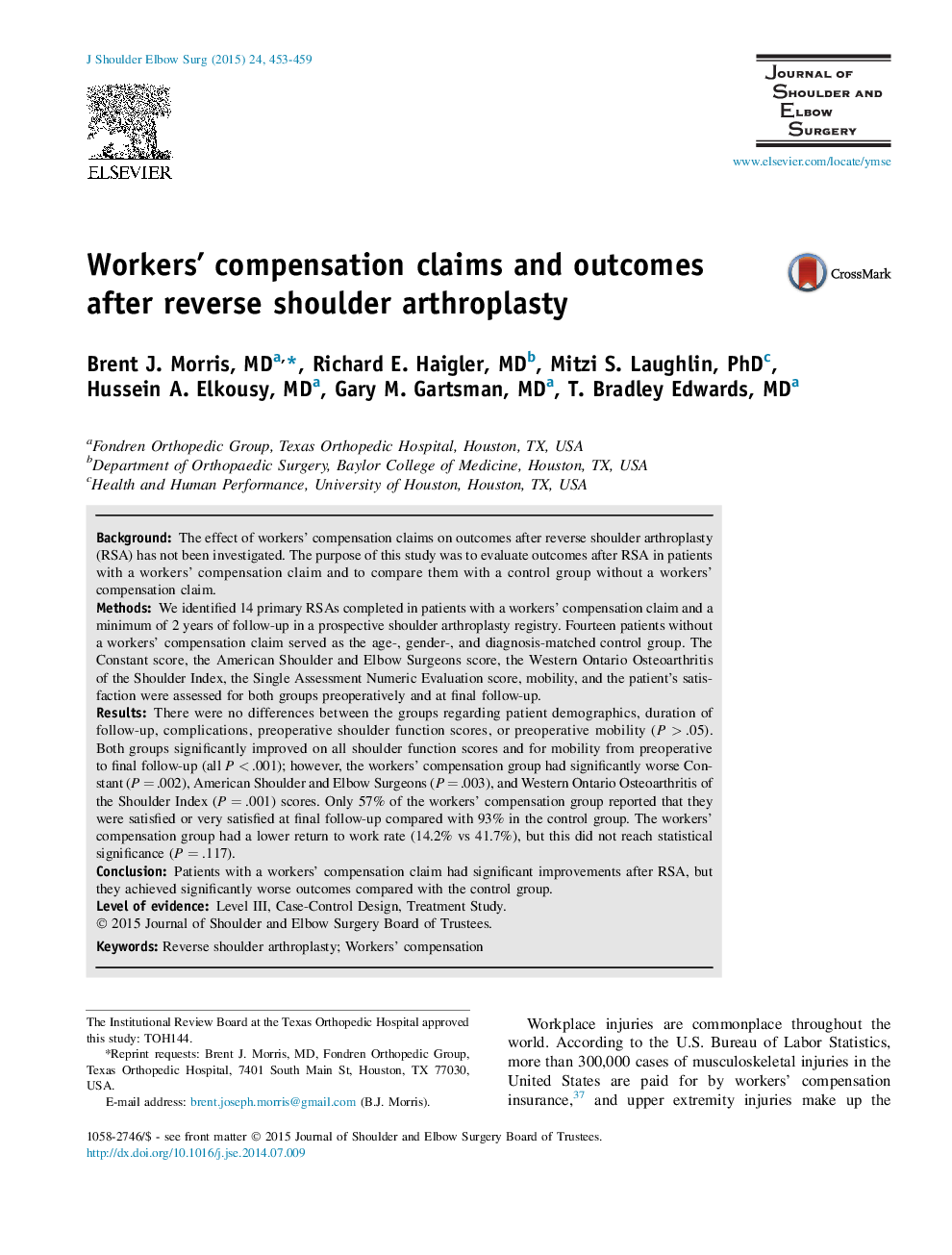| کد مقاله | کد نشریه | سال انتشار | مقاله انگلیسی | نسخه تمام متن |
|---|---|---|---|---|
| 4073513 | 1266983 | 2015 | 7 صفحه PDF | دانلود رایگان |
BackgroundThe effect of workers' compensation claims on outcomes after reverse shoulder arthroplasty (RSA) has not been investigated. The purpose of this study was to evaluate outcomes after RSA in patients with a workers' compensation claim and to compare them with a control group without a workers' compensation claim.MethodsWe identified 14 primary RSAs completed in patients with a workers' compensation claim and a minimum of 2 years of follow-up in a prospective shoulder arthroplasty registry. Fourteen patients without a workers' compensation claim served as the age-, gender-, and diagnosis-matched control group. The Constant score, the American Shoulder and Elbow Surgeons score, the Western Ontario Osteoarthritis of the Shoulder Index, the Single Assessment Numeric Evaluation score, mobility, and the patient's satisfaction were assessed for both groups preoperatively and at final follow-up.ResultsThere were no differences between the groups regarding patient demographics, duration of follow-up, complications, preoperative shoulder function scores, or preoperative mobility (P > .05). Both groups significantly improved on all shoulder function scores and for mobility from preoperative to final follow-up (all P < .001); however, the workers' compensation group had significantly worse Constant (P = .002), American Shoulder and Elbow Surgeons (P = .003), and Western Ontario Osteoarthritis of the Shoulder Index (P = .001) scores. Only 57% of the workers' compensation group reported that they were satisfied or very satisfied at final follow-up compared with 93% in the control group. The workers' compensation group had a lower return to work rate (14.2% vs 41.7%), but this did not reach statistical significance (P = .117).ConclusionPatients with a workers' compensation claim had significant improvements after RSA, but they achieved significantly worse outcomes compared with the control group.
Journal: Journal of Shoulder and Elbow Surgery - Volume 24, Issue 3, March 2015, Pages 453–459
